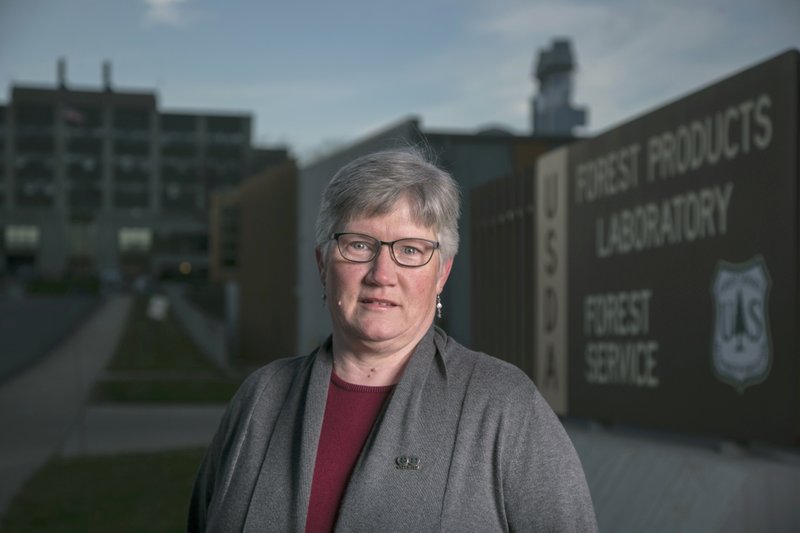McLEAN, Va. -- Melissa Baumann lives some 850 miles from the nation's capital, but when she hears President-elect Donald Trump and his supporters say they will "drain the swamp in Washington," she worries that they're talking about the 4 million or so federal workers around the country.
"I believe that is directed at us. And it's misdirected," said Baumann, a chemist who lives in Madison, Wis., where she also serves as a union officer for the Forest Service. The problems in Washington "have nothing to do with the people outside the Beltway" who are doing honorable work under difficult circumstances, she said.
RELATED ARTICLE
http://www.arkansas…">Trump talks Cabinet post with Petraeus
Trump's allies say the calls to "drain the swamp" were directed at lobbyists, donors, political cronies and even Congress, where Trump has proposed term limits. They say he didn't mean the vast majority of federal workers like Baumann who work outside of Washington. Government data show that less than 10 percent of the federal workforce is stationed in the nation's capital.
Large federal employment centers include California, Florida, Georgia, Maryland, Texas and Virginia.
[TRUMP: Timeline of president-elect’s career + list of appointments so far]
Greg Guthrie, an information specialist with the National Technical Information Service in Alexandria, Va., said he has adopted a "cautiously optimistic" stance. Trump won as a champion of the working class, he reasoned, and he hopes Trump will advocate for the federal working class as well as for the private sector.
Guthrie's co-workers are sympathetic regarding technology's disruption of the labor force, he said. The information service, a division of the Department of Commerce, provides reports and research to a variety of customers -- power given to it by the National Technical Information Act of 1988, which specified that only Congress could eliminate or privatize the service. Senators tried to repeal that law and abolish the service in 2014 with the Let Me Google That For You Act.
But Guthrie said his agency has reinvented itself and now helps government agencies use big data.
"I don't like some of the terms I'm hearing, like 'drain the swamp,'" said Guthrie, also an officer in his union. "Sometimes it's couched as we're these lazy, unnecessary relics. That's not true. We're people who work hard."
Corey Stewart -- who chaired Trump's Virginia campaign and serves as Board of Supervisors chairman in Prince William County, home to many federal workers -- said "drain the swamp" was directed at lobbyists and Washington insiders. The average federal worker doesn't have much to worry about, he said, though he does expect reductions at the Department of Education, the Internal Revenue Service and the Environmental Protection Agency because Trump is skeptical of those agencies.
Stewart said Trump's promises to bolster defense will result in a net benefit for the capital region and the federal workforce.
He said Trump won't find much savings in the federal labor force because it has already been squeezed by budget cuts. The number of executive branch employees hasn't been this low since 1965, government data show.
Bill Dougan, president of the National Federation of Federal Employees, said many federal workers are adopting a wait-and-see attitude. He said he expects Republican attacks on federal salaries and pension benefits to continue, but he's "hopeful that we're going to see some appointments with some experience in government and how government works, or it's going to be a real problem."
Still, he said, there's some optimism that federal workers connected to defense and the Department of Veterans Affairs could see improvements, given campaign promises to increase spending there.
But Kim Valavez, a social worker at a VA clinic in Santa Rosa, Calif., said workers fear that a Trump administration may favor privatization over investing in the VA itself.
"People are scared," she said. "It feels like a great unknown."
Rep. Gerry Connolly, the ranking Democrat on a subcommittee overseeing the federal civil service, said he doesn't expect the GOP-controlled Congress to oppose any Trump efforts to downsize the federal workforce.
"I think if anything they will be more emboldened to scapegoat federal workers than before," said Connolly, whose northern Virginia district is home to large numbers of federal workers and contractors.
A Section on 11/29/2016

